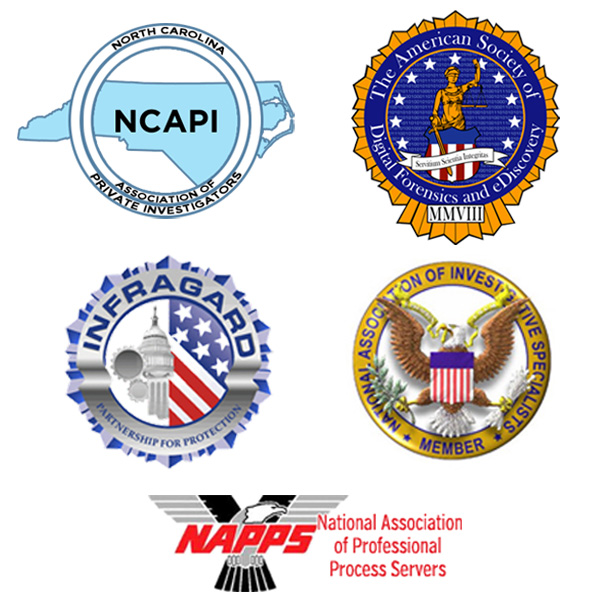At Victory Investigations, our private investigators place substantial reliance on surveillance techniques, considering them the cornerstone of our profession. These techniques are instrumental in unveiling concealed truths and unraveling intricate mysteries. They form the bedrock of our successful operations, playing a pivotal role in numerous investigative endeavors. This article takes a deep dive into the world of surveillance techniques practiced by our highly skilled professionals, offering an illuminating glimpse into their realm of discreet observation, technological prowess, and strategic finesse.
From cutting-edge gadgets that blur the boundaries between reality and fiction to the meticulous study of behavioral nuances, we embark on a journey to unearth the essence of surveillance techniques that define the very essence of our profession. Join us as we peel back the layers of this expertise, revealing the arsenal of tools and strategies employed by our elite private detectives in their unwavering pursuit of truth – all with the ultimate aim of tilting the scales of justice in favor of our valued clients.
Exploring Surveillance Fundamentals
Surveillance techniques stand as the cornerstone of effective investigative work, enabling private detectives to peer into the concealed aspects of individuals’ lives and circumstances. These techniques epitomize the culmination of skill, strategy, and technology, working in synergy to uncover the truth, even in the most intricate cases. In this section, we delve into the essential components that underpin the art of surveillance, establishing the groundwork for a deeper comprehension of how these methods are employed to illuminate the shadows.
Harnessing Cutting-Edge Technology
Private detectives are progressively embracing advanced technology to augment their capacities in evaluating personal and residential security. In the swiftly evolving landscape of technological tools, these professionals can now conduct more thorough and efficient security assessments. By integrating state-of-the-art technology into their investigative methodologies, private detectives are better prepared to identify vulnerabilities, anticipate potential threats, and propose targeted security solutions.
From high-resolution surveillance cameras and motion sensors to smart home automation systems, advanced technology empowers private detectives to monitor and analyze security situations in real-time. This data-centric approach equips them to make well-informed decisions regarding the most effective security measures for a given context. Moreover, the utilization of digital forensics and data analysis tools aids detectives in uncovering potential risks within online activities and information sharing.
Contemporary communication tools also enable private detectives to collaborate seamlessly with their clients and fellow security professionals. Virtual meetings, secure messaging platforms, and encrypted communication channels facilitate the exchange of crucial information while upholding confidentiality. Additionally, private detectives can leverage the potential of geolocation data and social media analysis to track movements, discern patterns, and evaluate potential threats to individuals or residences.
Mastering Behavioral Analysis
Mastering behavioral analysis is a critical skill for private detectives, as it enables them to uncover valuable insights about individuals’ intentions, motivations, and potential threats. Behavioral analysis involves observing and interpreting human behavior to understand patterns, trends, and anomalies that can be indicative of various psychological, emotional, or security-related factors. Here’s how private detectives can excel in this skill:
- Observation Skills: Private detectives must develop keen observation skills to discern subtle cues in a person’s demeanor, body language, and verbal expressions. These observations can provide valuable information about a person’s emotional state, level of comfort, and potential deception.
- Psychological Insight: A deep understanding of human psychology is essential for effective behavioral analysis. Detectives should be familiar with principles of psychology, such as microexpressions, cognitive biases, and nonverbal communication, to accurately interpret behavior.
- Pattern Recognition: Detectives need to identify behavioral patterns over time to detect any deviations or changes that might signal a shift in intentions or motivations. Recognizing unusual behaviors can help uncover hidden agendas or potential threats.
- Contextual Analysis: Behavioral analysis should always consider the context in which behavior occurs. Detectives need to understand the environment, social dynamics, and personal history of individuals to make accurate assessments of their actions.
- Emotional Intelligence: Being attuned to emotions is crucial for behavioral analysis. Detectives with high emotional intelligence can empathize with subjects, gaining a deeper understanding of their motivations and potential triggers for certain behaviors.
- Interviewing Techniques: Effective interviewing skills are paramount for detectives to elicit relevant information and observe behavioral cues from subjects. Open-ended questions and active listening techniques can help uncover hidden motives or inconsistencies.
- Cultural Awareness: People from different cultures exhibit behaviors differently. Detectives should be culturally sensitive and aware of cultural norms to accurately interpret behavior without misjudgment.
- Data Analysis: Incorporating data-driven approaches can enhance behavioral analysis. Detectives can use information from various sources, such as online activities and social media, to build a comprehensive profile of an individual’s behavior.
- Ethical Considerations: Ethical guidelines are crucial when analyzing behavior. Private detectives must ensure that their analysis respects privacy and legal boundaries, avoiding any intrusion or manipulation.
- Continuous Learning: Behavioral analysis is an evolving field. Detectives should engage in continuous learning to stay updated on the latest research, techniques, and tools related to understanding human behavior.
Mobile Surveillance Techniques
Mobile surveillance techniques are essential tools for private detectives in their efforts to gather information, monitor individuals, and conduct investigations discreetly. These techniques involve the use of mobile devices and vehicles to observe and document the activities of subjects while maintaining a low profile. Here are some key aspects of mobile surveillance techniques:
- Vehicle Selection: Private detectives choose vehicles that blend into the surrounding environment to avoid drawing attention. This often means using inconspicuous cars or ones that are commonly seen in the area.
- Discreet Observation: Detectives use mobile devices such as smartphones, tablets, or specialized surveillance equipment to discreetly observe and record subjects’ activities from a distance.
- Use of Binoculars and Cameras: Binoculars and high-quality cameras equipped with zoom lenses are used to observe subjects and capture clear images and videos, even from a distance.
- Adapting to Traffic and Routes: Mobile surveillance requires knowledge of traffic patterns and routes to follow subjects without being detected. Detectives may use navigation apps to adapt to changing traffic conditions.
- Maintaining Distance: A crucial aspect of mobile surveillance is maintaining a safe and reasonable distance from the subject’s vehicle or location to avoid arousing suspicion.
- Blend-In Techniques: Detectives may adopt techniques like changing vehicles during surveillance or using rental cars to prevent subjects from recognizing the same vehicle repeatedly.
- Team Coordination: In complex surveillance operations that may involve a team of detectives, effective communication and coordination are essential to ensure seamless observation and the sharing of critical information.
- Nighttime Surveillance: Mobile surveillance techniques extend into nighttime operations, necessitating the use of specialized equipment like night-vision cameras to maintain visibility.
- Data and Evidence Collection: Detectives meticulously document their observations, capturing photographs, videos, and notes that can serve as crucial evidence in investigations.
- Legal and Ethical Considerations: Surveillance activities must always align with legal and ethical guidelines. Private detectives are obligated to respect privacy rights and avoid invasive tactics.
- Reporting and Analysis: Detectives compile comprehensive reports that meticulously detail their observations, subjects’ behaviors, and any pertinent information gathered during surveillance.
- Adapting to Dynamic Situations: Surveillance techniques are adaptable and contingent on the nature of the case, the behaviors exhibited by the subjects, and the specific objectives of the investigation. Detectives must possess adaptability and quick-thinking capabilities.
- Electronic Surveillance: In addition to physical surveillance, private detectives may employ electronic surveillance tools such as GPS trackers to discreetly monitor the movements of vehicles.
- Pre-Surveillance Research: Effective mobile surveillance commences with thorough research on the subject, encompassing their routines, habits, and known associates. This information serves as the foundation for surveillance strategies.
- Continuous Training: Proficiency in surveillance techniques necessitates ongoing training to remain current with emerging technologies, evolving tactics, and ever-changing legal regulations.
GPS Tracking and Location Monitoring
GPS tracking and location monitoring are invaluable tools employed by private detectives to acquire real-time information regarding the movements and activities of individuals or assets. These techniques leverage Global Positioning System (GPS) technology to accurately trace the location of a target, offering invaluable insights for investigative purposes. Here’s how GPS tracking and location monitoring are applied:
- Real-Time Tracking: GPS tracking devices, often discreet and compact, are strategically placed on vehicles, personal items, or individuals to furnish real-time updates on their precise location.
- Asset Recovery: GPS tracking frequently plays a pivotal role in asset recovery endeavors, including the location of stolen vehicles or valuable items. Private detectives can track the movements of these assets and collaborate with law enforcement agencies to facilitate their recovery.
- Surveillance Enhancement: GPS tracking enhances surveillance efforts by allowing detectives to follow subjects without needing to be physically present at all times. This is particularly useful for cases requiring long-term observation.
- Evidence Collection: GPS data can be used as evidence in legal cases. Location records from GPS devices can provide a timeline of a subject’s movements, which can be crucial for building a case.
- Behavioral Analysis: By analyzing patterns of movement, detectives can gain insights into a subject’s routines, behaviors, and potential associations.
- Alibi Verification: GPS tracking can help verify alibis or inconsistencies in a subject’s statements by cross-referencing their claimed whereabouts with actual locations.
- Child and Elderly Safety: GPS tracking is used to monitor the safety of children, elderly individuals, or people with special needs. Caregivers or family members can keep track of their loved ones’ movements to ensure their well-being.
- Employee Monitoring: In some cases, employers use GPS tracking to monitor the movements of employees, particularly for work-related activities like delivery services.
- Legal and Ethical Considerations: Private detectives must adhere to legal and ethical guidelines when using GPS tracking. Consent may be required to track individuals, and privacy rights must be respected.
- Data Security: Secure transmission and storage of GPS data are important to prevent unauthorized access or misuse of sensitive location information.
- Battery Life and Maintenance: Detectives need to manage the battery life of tracking devices to ensure uninterrupted monitoring. Regular maintenance is also essential to ensure devices remain functional.
- Emergency Situations: GPS tracking devices can be crucial in emergency situations, enabling rapid response teams to locate individuals in distress quickly.
- Discreet Placement: Detectives strategically place GPS devices on vehicles or objects where they are unlikely to be detected, ensuring the effectiveness of tracking efforts.
- Training and Expertise: Effective use of GPS tracking requires training in device operation, data interpretation, and legal compliance.
Conclusion
In conclusion, elite private detectives employ a range of sophisticated surveillance techniques that set them apart as masters of their craft. Through a combination of meticulous planning, cutting-edge technology, and astute observation, these professionals excel in gathering critical information discreetly and ethically. Their ability to adapt to various scenarios, maintain a low profile, and employ advanced tools ensures the success of their surveillance operations.
From mobile surveillance techniques that involve inconspicuous vehicles and real-time GPS tracking to the mastery of behavioral analysis, elite detectives possess a unique skill set that allows them to uncover hidden truths, track movements, and make informed decisions. Their expertise in gathering evidence, verifying alibis, and providing invaluable insights serves a wide range of clients, including individuals, corporations, and legal entities.
Ethical considerations remain paramount, guiding the actions of elite private detectives as they navigate complex situations. Respect for privacy rights, adherence to legal regulations, and a commitment to maintaining the utmost professionalism underpin their operations.
In a world where information is often elusive, elite private detectives stand as the guardians of truth, employing their unparalleled surveillance techniques to unveil mysteries, mitigate risks, and contribute to the pursuit of justice. Through their dedication to continuous learning, mastery of technology, and unwavering commitment to ethical practices, these professionals play an indispensable role in the realm of investigation and security.





Speak Your Mind